At A Dental Care, we are aware that tooth loss happens for a variety of reasons, such as trauma and decay. No matter what the reasons for the tooth loss, many patients end up needing dentures. Good oral health, including being able to chew nutritious foods, is critical for ensuring that your body gets what it needs.
In the past, patients were limited to traditional dentures. These are prosthetic teeth that sit on your gum ridge and typically need an adhesive to stay in place. Some patients need a full set, and some just need an upper or lower set. In some cases, they may have a partial that attaches to their natural teeth.
One of the issues with traditional dentures is that patients need to have a good gum ridge for them to sit on. Missing teeth often results in bone loss in the jawbone over time, which makes it hard to maintain a good fit. When your dentures don’t fit properly, it can be challenging to chew, talk, and even smile.
However, there have been lots of advancements in the dental world which have led to improved denture options. One of these options is implant-supported dentures.
The advantages of implant-supported dentures are as follows:
Implant-supported dentures are attached to dental implants in your jawbone, so you don’t have to worry that they will slip around in your mouth. This makes it easier to eat and talk with confidence.
Since the denture plate is attached to the dental implants and won’t shift around in your mouth, you won’t have to worry about sore spots or irritated gums. This is because the denture plate is not resting directly on your gums like traditional dentures do.
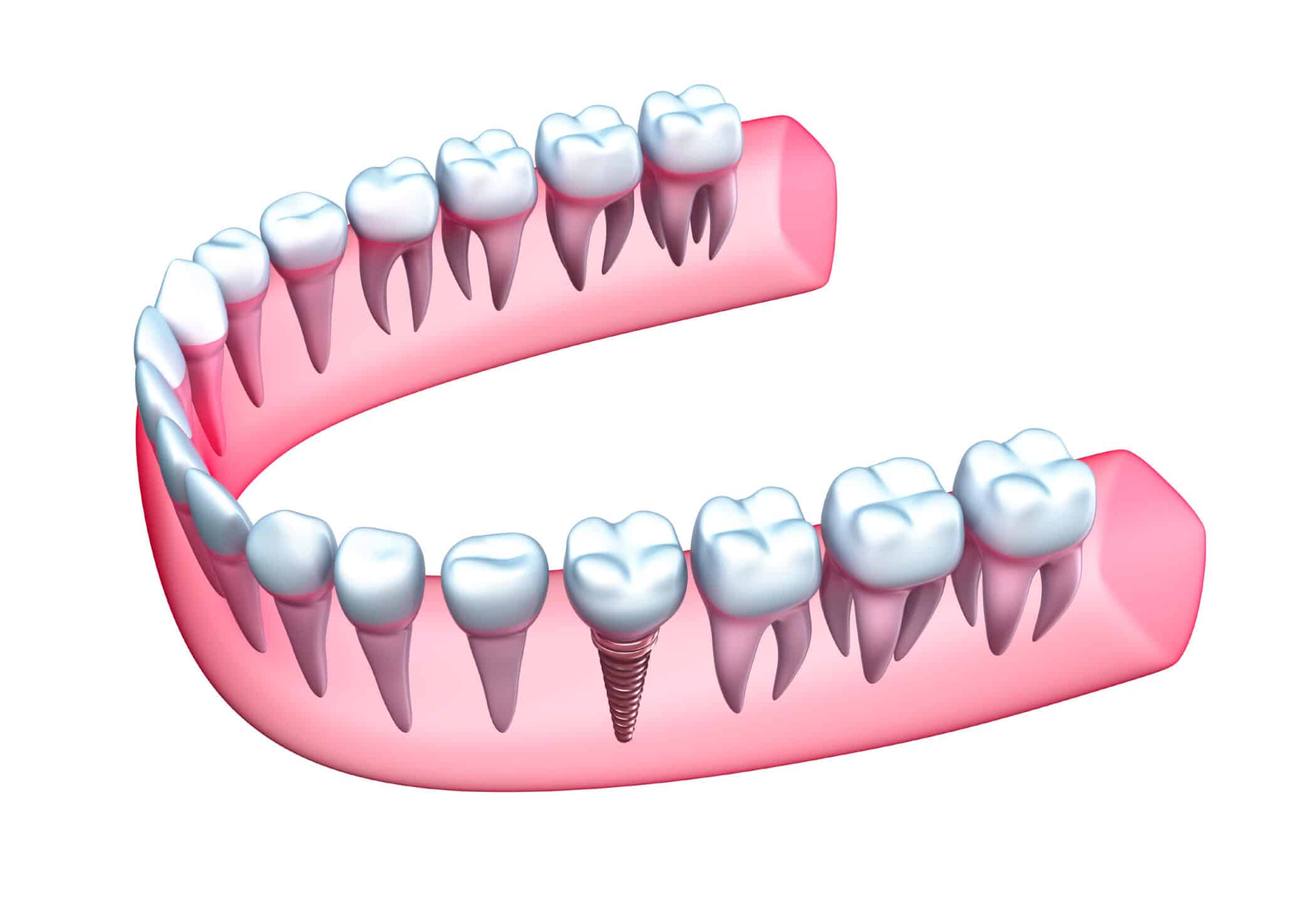
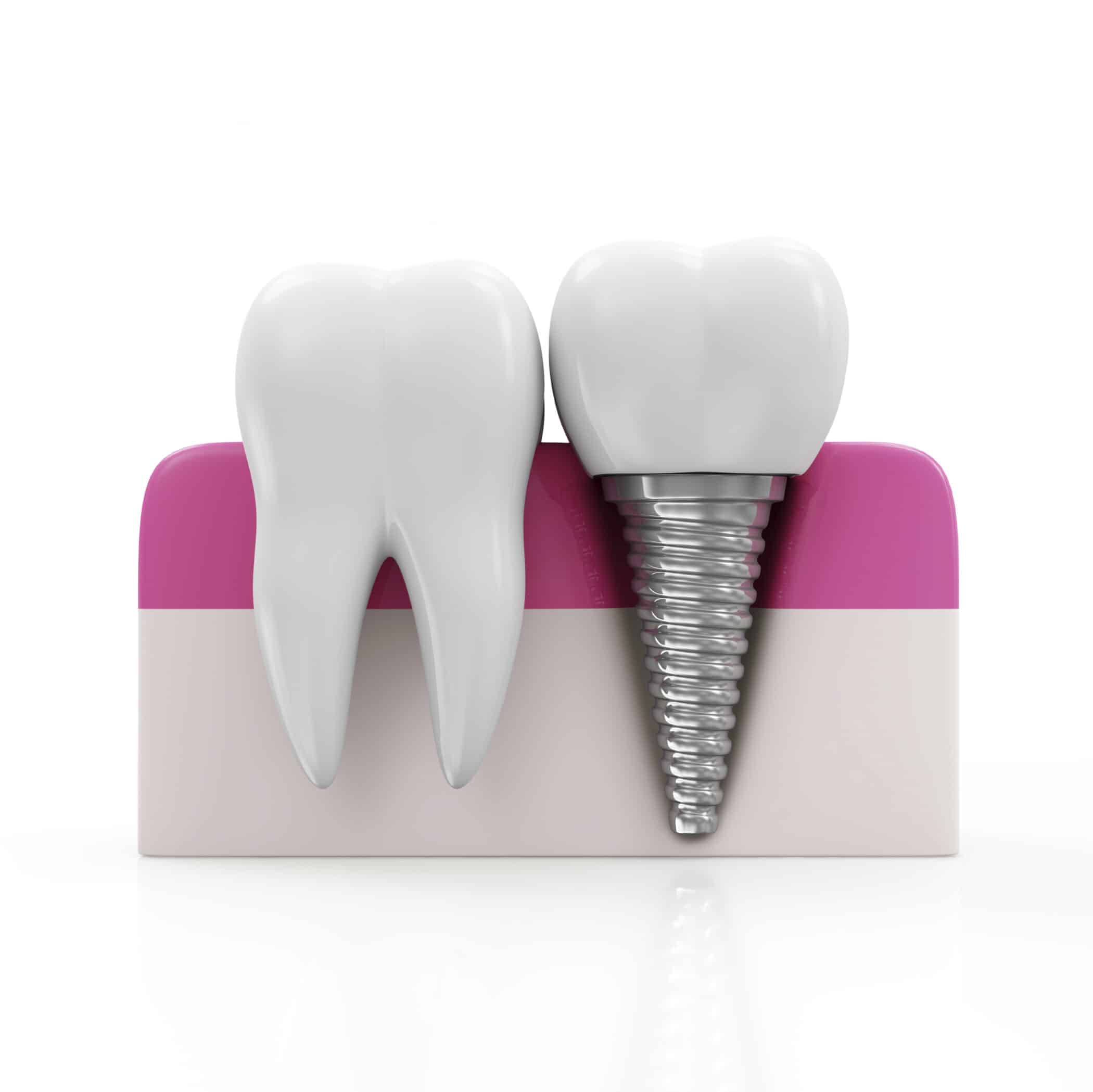
Since the implants are placed in your jawbone, it keeps the jawbone stimulated and healthy. When you lose your teeth, your jawbone will deteriorate and ultimately weaken and shrink. However, dental implants act as tooth roots, which keeps the jawbone healthy.
Traditional dentures require denture adhesive to stay in place- but this is not necessary with implant-supported dentures. After all, they are attached to the implants. This saves you a lot of money and keeps you from having to think about the many options for denture adhesive.
Implant-supported dentures is a permanent solution to replace missing teeth for those who are missing all of their upper or lower arch. Typically, we will install 4 to 8 implants into your jawbone for the denture to attach to. The implants act like tooth roots to create stability that you don’t get with traditional dentures. These are also often referred to as Fixed Dentures.
In order to qualify for implant-supported dentures, you must have sufficient bone density in your jawbone. Unfortunately, not all of our patients qualify for this tooth replacement procedure. In some cases, we may be able to do a bone graft, where we take healthy bone from elsewhere or use a synthetic material to build up the bone to accommodate the implants.

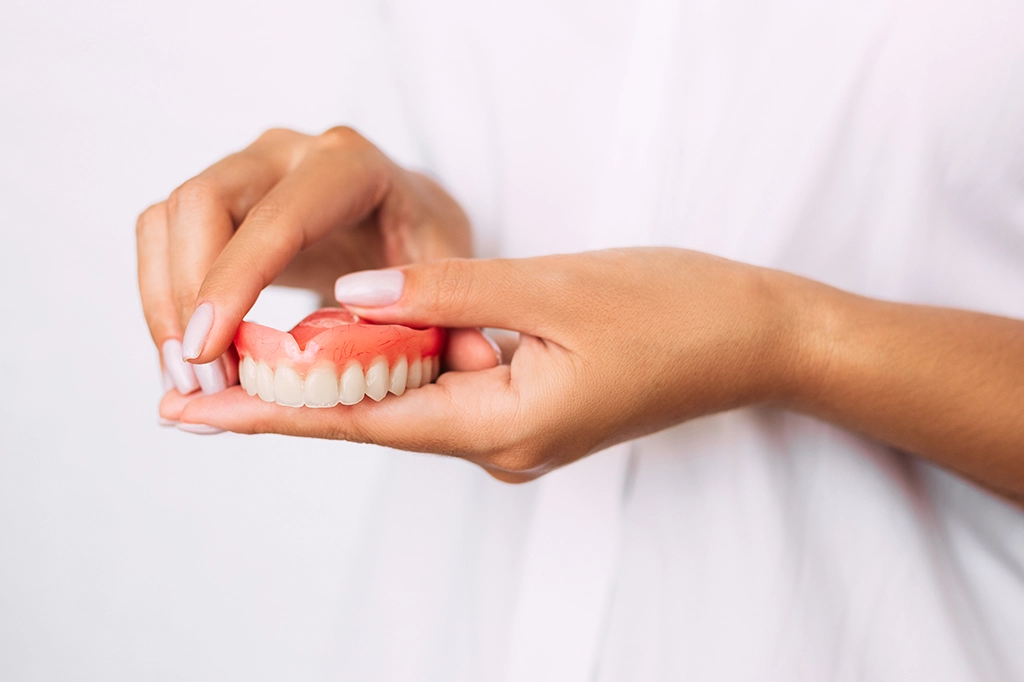
Many patients mistakenly believe that implant-supported and implant-retained dentures are the same thing- but they are actually different:
Implant-supported, or fixed, dentures offer patients the most natural, effective bite because the jawbone is able to absorb the full force of the bite- taking pressure off the gums.
Patients typically need 4 to 8 implants, which increases the price of the procedure. This type of denture stays fixed in your mouth. The dentist will be able to use special tools to remove them for cleaning during your annual exams.
We also offer the All-on-4 dental implants, which means that we use 4 implants to support a full dental arch.
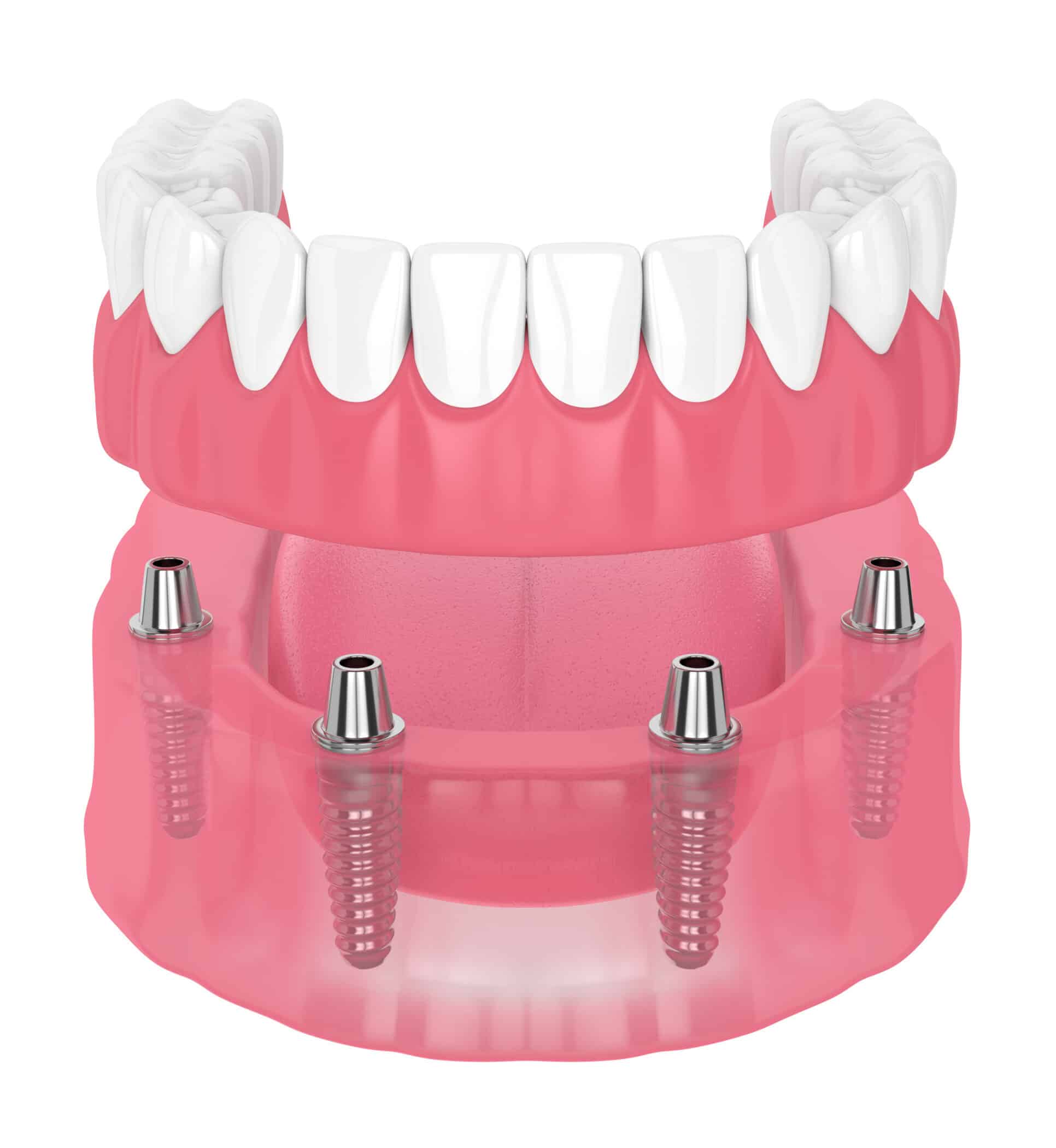
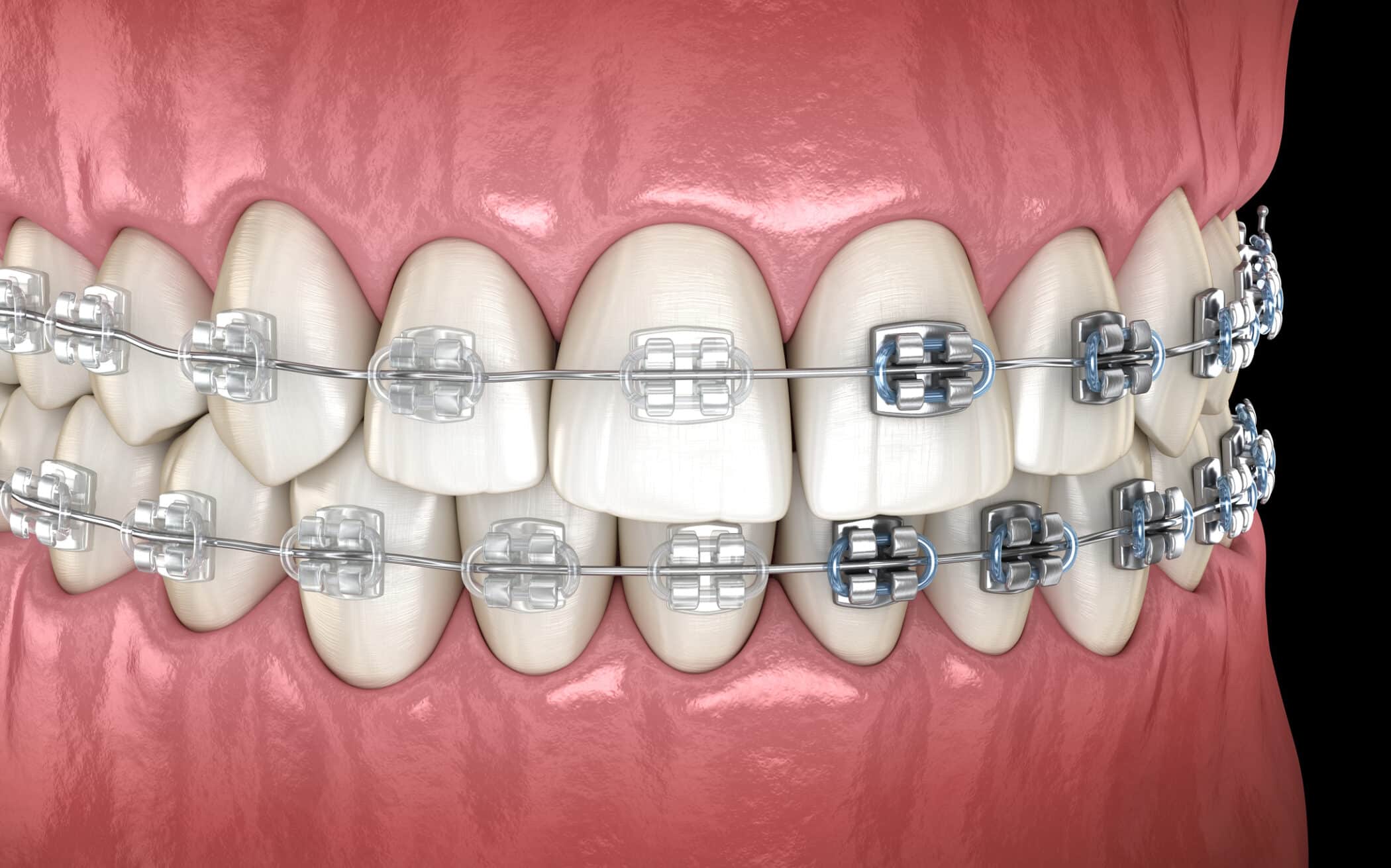
Typically, implant-retained, or removable, dentures only require 2 to 4 implants. In many cases, we can use mini dental implants instead of full ones. This means that patients who don’t have sufficient bone density to accommodate endosteal implants are able to get this tooth replacement solution. These are known as subperiosteal implants and remove the need for a bone graft.
With implant-retained dentures, you can eat and speak normally- but it’s important to note that your gums will absorb more of your bite. This could be uncomfortable and could ultimately lead to gum damage. Plus, like with traditional dentures, you will need to remove these for cleaning every night.
Typically, implant-retained, or removable, dentures only require 2 to 4 implants. In many cases, we can use mini dental implants instead of full ones. This means that patients who don’t have sufficient bone density to accommodate endosteal implants are able to get this tooth replacement solution. These are known as subperiosteal implants and remove the need for a bone graft.
With implant-retained dentures, you can eat and speak normally- but it’s important to note that your gums will absorb more of your bite. This could be uncomfortable and could ultimately lead to gum damage. Plus, like with traditional dentures, you will need to remove these for cleaning every night.
It’s important to note that the process of getting implant-supported dentures can be lengthy. In many cases, it takes 2 to 7 months from start to finish.
The first step in the process is implant surgery. Your dental surgeon will open your gums so they can see your bone. They will use a drill to create a hole in your jawbone for the implant to be placed. Over time, the bone will osseointegrate- or fuse- with the implant so that the implant becomes like a tooth root. This takes 2 to 6 months. This will create a firm foundation for your dentures.
The next step is to have the abutments attached to the implants. This is what your denture will be clipped onto to hold them in place. If you have subperiosteal implants, you will not need this step, as they already have the abutment attached.
Once completely healed, we will take a mold of your arch and send it to the lab to have your dentures created. Once the denture is ready, it will be sent to the office, and we will schedule your appointment to have them placed in your mouth.
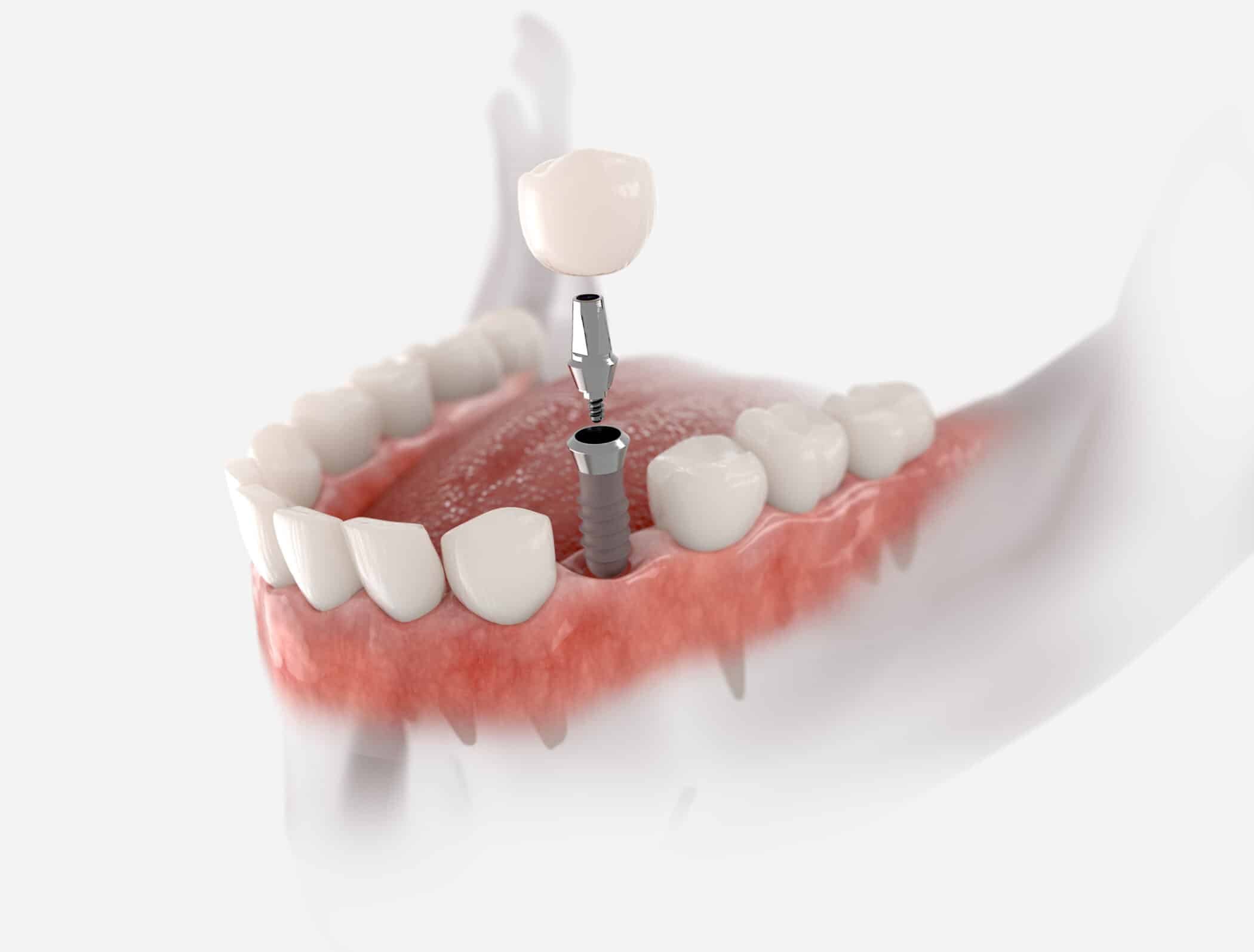
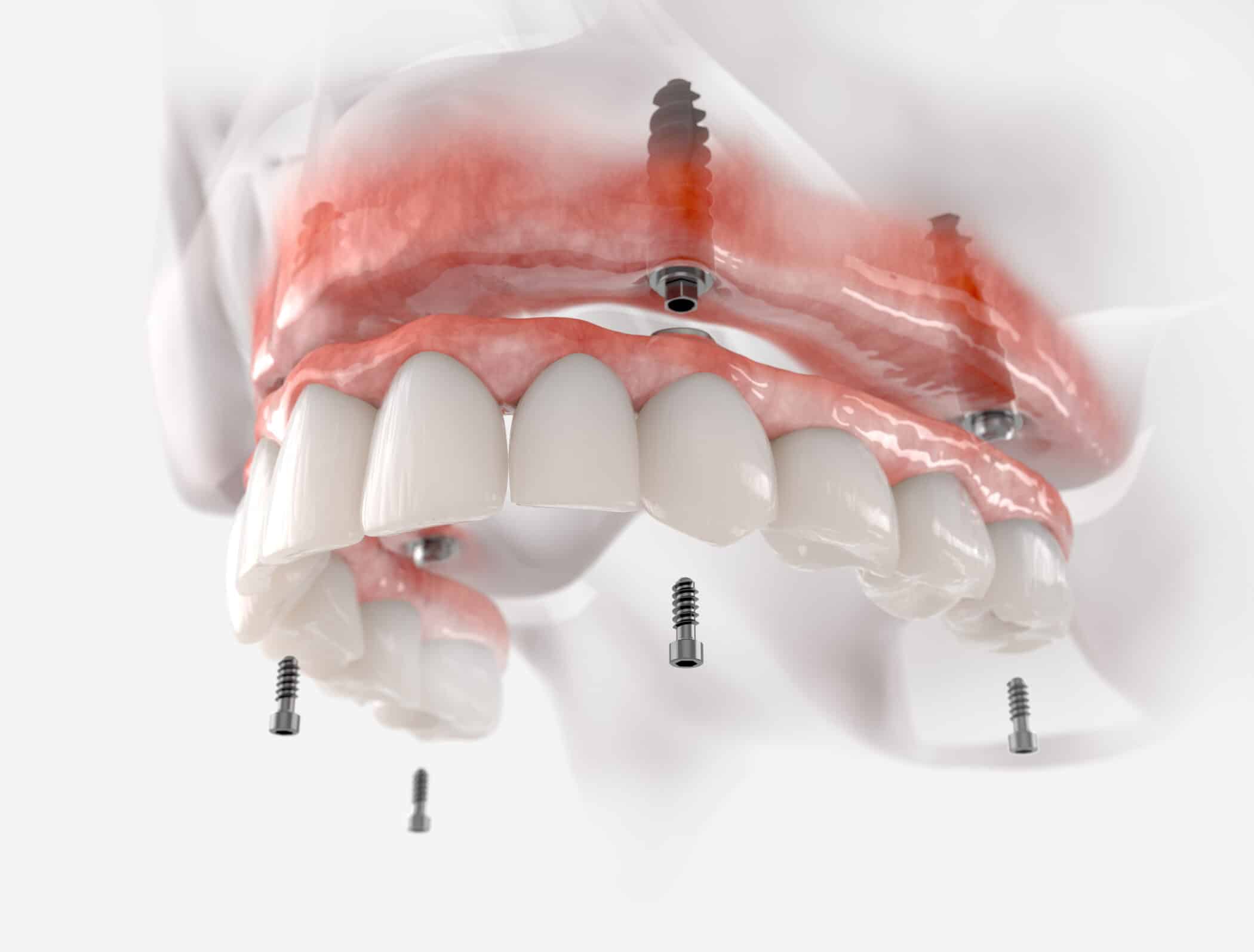
Just like with your natural teeth, bacteria and food particles can cause your dentures to become stained or lead to plaque buildup and gum disease. You can prevent this by practicing good oral hygiene to keep your mouth healthy and your dentures pearly white and in good shape.
Implant-supported dentures are fixed in place, so you will not need to remove them to clean them. Only your dentist will be able to remove them with special tools in the office during your annual visits. Your typical at-home oral routine will be similar to that of people with all their natural teeth.
There are several factors involved in determining the cost of implant-supported dentures.
Some insurance plans will cover a portion of the procedure, some cover the whole thing, and others won’t cover anything at all. Our office staff will work with your insurance company to determine coverage during your consultation so that you will have all of the information you need to make a decision. The factors that influence the cost of your dentures include:
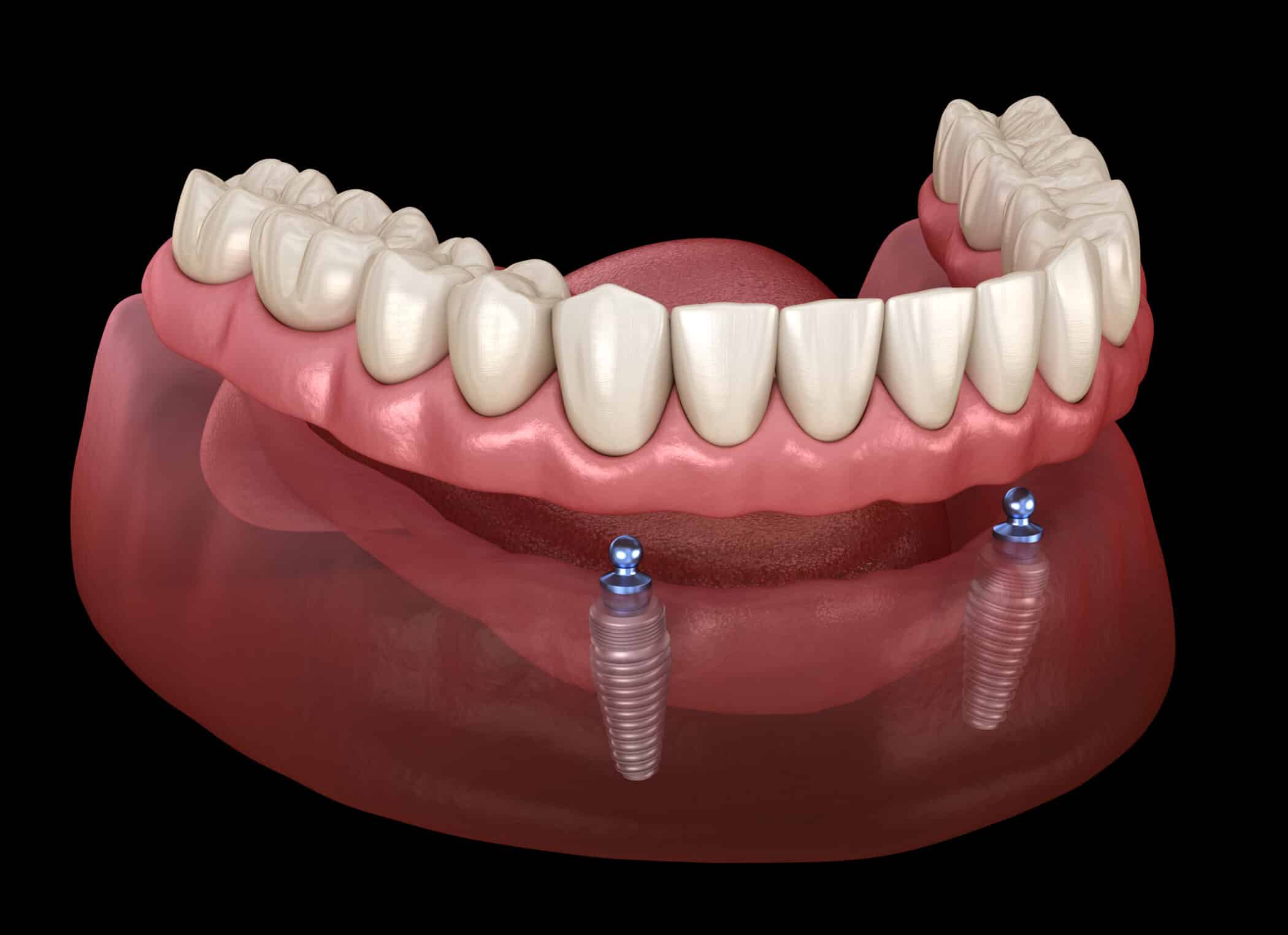
On average, you should expect your implant-supported dentures to cost $6,000 to $8,000 per arch. However, this cost does vary and may be significantly higher based on the above factors.
At A Dental Care, we accept a variety of dental plans. While there are some that will cover at least a portion of the procedure, there are many that don’t cover anything. Often, they consider implants to be a cosmetic, elective procedure instead of a necessity. However, we do offer some options if your dental insurance plan does not cover this procedure.
At A Dental Care, we understand that putting off a dental procedure can be detrimental to your overall health. Therefore, we do have financing options available for patients who are unable to pay for their treatment all at one time. We offer CareCredit, Sunbit, Alphaeon Credit, and Ally. Our friendly office staff is more than happy to help you with the application process.
If you are missing most or all of your teeth and believe you might be interested in implant-supported dentures, please call the office closest to you today to make an appointment. We have four locations in Houston and one in Spring, Texas. Our offices are open Monday through Friday from 8 AM to 8 PM and on Saturday and Sunday from 8 AM to 5 PM. We look forward to meeting with you to restore your smile and your confidence.
About Us
At A Dental Care, we understand the importance of having access to emergency dentistry services in Houston, TX. We provide comprehensive dental care in Houston, TX for individuals who need urgent attention and are committed to providing excellent customer service. Rated as one of the Best Dentists in Houston, TX.
2022 © A Dental Care. All Rights Reserved.
Dental Marketing by WEB MARKETING FOR DENTISTS